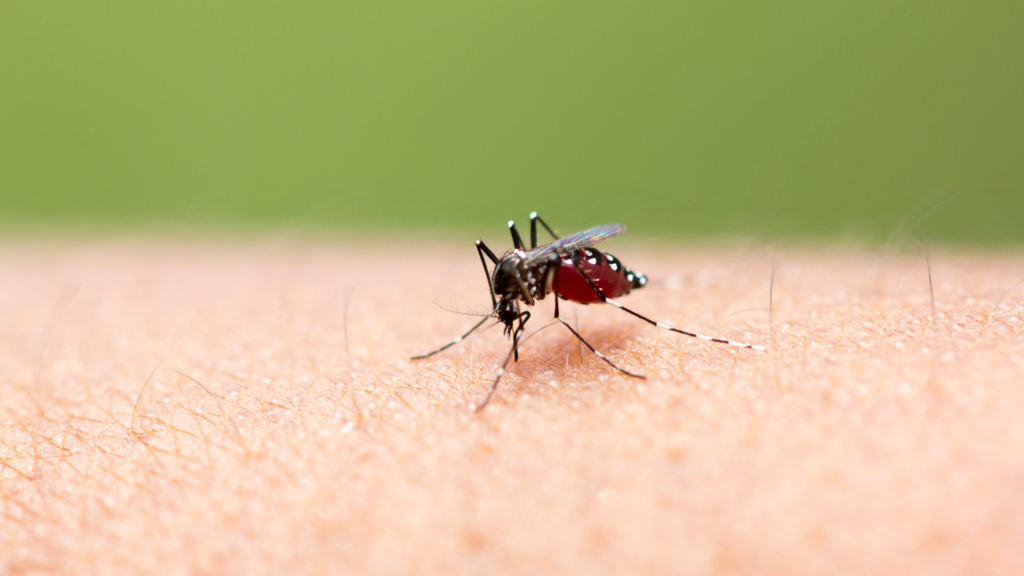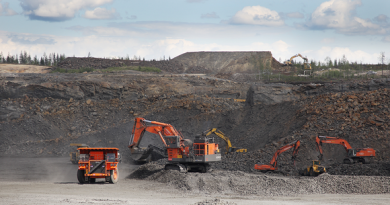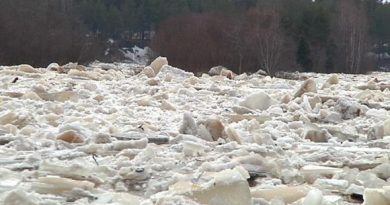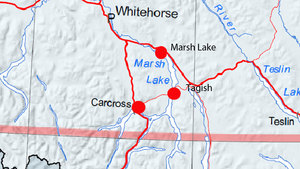Finnish Lapland may see more mosquitoes this summer after snowy winter

Heavy snow in Lapland last winter has made this a promising summer for mosquitoes–less so for humans.
Lapland may be thick with mosquitoes this summer as the winter’s deep snow cover protected larvae from drying out in shallow ponds which are a favourite breeding ground of the tiny pests.
This summer’s mosquitoes have already hatched in southern Finland while Lapland’s blood-suckers will begin gathering in mid-June, according to Jukka Salmela, who researches mosquitoes at the University of Lapland.
Hardy beasts
Finland’s Nature League said it has so far received hundreds of mosquito sighting reports, with residents in southern Finland already laying eyes on the tiny vampires in March. But these early bird mosquitoes are actually females that hatched late during the previous summer, hunkering down in places like tree hollows or basements until spring, according to Antti Salovaara of the Nature League.
When the weather warms up, they wake up and fly out in search of their first blood meal which they need for laying eggs.
Salmela said he has already spotted adult mosquitoes up north. These are tough individuals that survived Lapland’s record snowfall last winter that even prompted avalanche warnings.
“Ponds dry up too quickly if it has been a winter with little snow. Larvae are susceptible to drying out,” Salmela explained.
Out for blood
The majority of Finland’s 30 different mosquito species feed on humans, the most common of which is Ochlerotatus communis. Southern Finland has a more diverse population of the vermin than the north.
While some of these droning insects will settle for sucking blood out of birds or frogs, they’re all interested mammal blood, including that of humans.
Salmela, however, doesn’t recommend home-made attempts to evict mosquitoes, such as drying out ponds or covering water surfaces with an oil film to smother larvae, as these methods can also harm other insects.
Related stories from around the North:
Canada: Arctic researchers prepare for a summer where they can’t travel to Canada’s North, CBC News
Finland: Precipitation levels in North Finland 1.5 –2 times higher than average, Eye on the Arctic
Greenland: Biosecurity an increasing concern in Arctic, Antarctic regions, experts warn, Eye on the Arctic
Iceland: Ice-free Arctic summers likely by 2050, even with climate action: study, Radio Canada International
Norway: Svalbard: Colder than normal for the first time in 10 years, The Independent Barents Observer
Russia: Red alert for northern Siberia as heat shocks threaten tundra life, The Independent Barents Observer
Sweden: January temperatures about 10°C above normal in parts of northern Sweden, says weather service, Radio Sweden
United States: Temperatures nearing all-time records in Southcentral Alaska, Alaska Public Media



